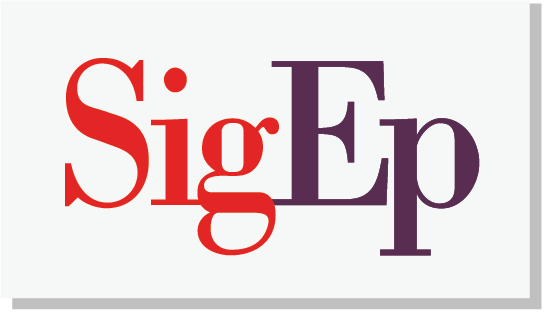College students spend the great majority of their time outside of the classroom. Many of the life lessons and skills that an undergraduate should develop during his college years must be learned during this vast amount of largely unstructured time. These lessons include: communication skills, conflict management, decision-making, relationship building, organizational skills, project management, stress management, tolerance, maintaining a healthy lifestyle and so much more.
Learning communities have become a priority within the American higher education system to ensure that students have the opportunities to develop these critical skills during some of the most formative years of their lives.
This concept is not new. The residential learning college began centuries ago at Oxford and Cambridge universities in England, and Yale and Harvard later adopted it in the 20th century. Today the residential learning concept takes many different forms on campuses across the country. SigEp shares the same academic philosophy as these great institutions, as each of our brothers commits to working diligently toward his college diploma.
Fostering a living-learning environment, fashioned after the residential learning concept, is one of the most critical ways Sigma Phi Epsilon can provide a meaningful experience to our brothers. Find a list of current accredited SigEp Learning Communities here.
History of SigEp Learning Communities
SigEp’s Residential Learning Community (RLC) program was established in 2000 as a guide for chapters to create a more powerful living-learning environment. The RLC concept expands upon traditional residential college models and recent research within higher education. Students in living-learning communities have higher overall grades, are more engaged in on-campus activities, and are more likely to spend their time outside of the classroom developing the life skills they need to succeed after graduation. SigEp must offer these experiences to our brothers, so we can deliver a membership experience of value, which promotes personal growth.
In 2019, SigEp announced a name change to this innovative program to be more inclusive of unhoused chapters and align the framework of the learning community concept with the Balanced Man Program. Today, chapters with this status are known as SigEp Learning Communities.
The SLC Accreditation Process
SigEp Learning Communities are accredited through a rigorous application process to ensure the chapter is committed to the philosophies of the program. Once accredited, chapters are required to go through a biennial renewal process. The purpose of this exercise is to continually reflect and assess the current state of the chapter’s SigEp Learning Community programming, engagement of volunteers and university stakeholders, and physical space if applicable. The SigEp Learning Community accreditation rubric can be found here.
People Involved
The SigEp Learning Community is only successful as the people that support it. Chapters that elect a vice president of SigEp Learning Community can delegate responsibility for building the learning environment, manage a learning community committee, and coordinate programming for the entire chapter. Faculty fellows and resident scholars also support the SigEp Learning Community in their own right.
Vice President of SigEp Learning Community
In 2021, the Grand Chapter voted to establish the vice president of SigEp Learning Community position. The vice president of the Learning Community is responsible for creating a learning environment and is responsible for leading and implementing the Learning Community committee.
Faculty Fellows
Faculty fellows are faculty members at a host institution who work with the chapter to play a key role in the member development program. Faculty fellows work with the chapter in a wide range of areas, from providing individuals with academic support to working with the vice president of member development to oversee the Balanced Man Program.
Resident Scholars
A resident scholar (also known as a graduate scholar for unhoused chapters) is a full-time graduate student who resides within a chapter facility to provide the chapter with daily mentorship, including helping younger brothers manage the transition from high school, mentoring officers, and encouraging high academic achievement.







